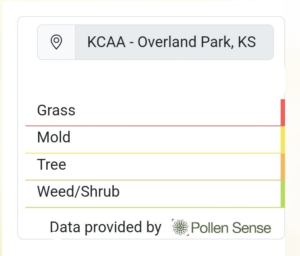SINUSITIS
SINUSITIS
Sinusitis is an inflammation often caused by a bacterial infection. It can occur after a respiratory infection like a common cold. People with allergies or asthma are prone to suffer from chronic sinusitis due to the likelihood of their airways becoming inflamed.
Symptoms include:
- Thick nasal discharge
- Nasal congestion
- Postnasal drip, often with a bad taste
- Cough
- Headache
- Pain in teeth
- Decreased sense of smell
- Wheezing, if asthmatic
Symptoms disappear in about a week. Some people will develop a bacterial infection that requires antibiotics.
These symptoms might be a sign of sinusitis or caused by allergies. KCAA physicians are specifically trained to properly diagnose these conditions.
Chronic sinusitis occurs when symptoms persist over 8 weeks, despite treatment. We will examine a patient’s medical history and symptoms to diagnose chronic sinusitis. We might recommend a CT scan or allergy testing to determine what triggers the inflammation. Once we identify the triggers, we develop a treatment plan. Our plans typically involve:
- Saline irrigation
- Nasal steroid sprays
- Antihistamines/decongestants
- Antibiotics
Since allergies lead to chronic sinusitis, immunotherapy is often the most effective long-term treatment because it decreases sensitivity to allergens, thus reducing occurrence of sinusitis. Left untreated, chronic sinusitis can cause frequent sinus, ear, and upper and lower respiratory infections.


